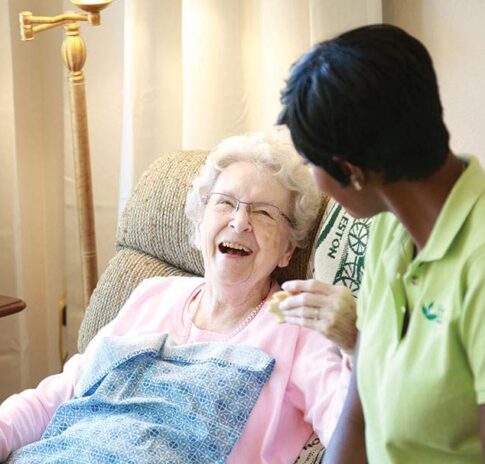Did you know that your teeth age? As we age, so do our mouths. Even if you take excellent care of them, your teeth, gums and jawbone will change as you get older. The medicines we take can negatively impact your oral health which is why our Nurse Gina recommends you visit your dentist two times a year for cleaning and X-rays. Prevention is the key!
As we grow older, the changes going on inside our mouth could include:
Tooth Changes: Chewing, grinding and normal life will cause your teeth to wear down over time. People who clench or grind their teeth may have more wear on their teeth than other people.
You may notice that your teeth look darker as you age. That’s because aging dentin (the tooth’s middle layer) gets thicker and darker. At the same time, tooth enamel thins, allowing more of the darker dentin color to show through. Staining from foods, wine, coffee, tea and tobacco also discolor teeth.
Many older people have more plaque buildup on their teeth. This may not be because of their age. It can be related to physical changes that can make it more difficult to brush and floss every day. For example, people may not be able to clean their teeth as well with arthritis or after a stroke. Or they may simply forget to do it.
Gum Changes: As you get older, your gums recede from the teeth and your jaw bone shrinks. These are moderate changes. Age alone does not lead to a major loss of the structures that support your teeth. If the roots are exposed, your teeth can become sensitive. Fluoride rinses can decrease this sensitivity. They also can help to prevent decay on the crowns and exposed roots of teeth.
Mouth Changes: Many oral changes are not caused by aging. Rather, they are side effects of medicines or other diseases. For example, many drugs and some diseases of the body cause changes in the way things taste. Taste changes can lead to nutritional problems. If food becomes less attractive, people may not eat a balanced diet.
Dry mouth is very common in older people. It is usually a side effect of medicine. Hundreds of medicines can cause dry mouth. Saliva normally washes away bits of food and bacteria and helps keep your mouth clean. If you have a dry mouth, the bacteria and food will stay around longer. This means they are more likely to cause decay. Over-the-counter fluoride rinses can help protect your teeth from decay. You can moisten your mouth using artificial saliva. Other options are to drink more water or suck on sugarless lemon drops.
If you have aging parents, you may want to check to see when their last visit to the dentist was and if they are having any issues with their mouth. FirstLight Home Care’s Personal Care Services work with family members on oral hygiene. Our caregivers can help our clients with mouth, gum, and denture care to encourage better overall oral hygiene. Learn more about our Personal Care Services.
